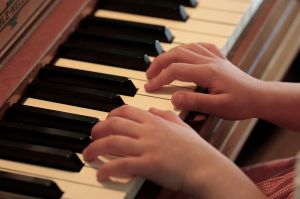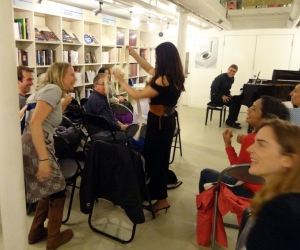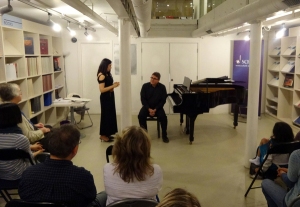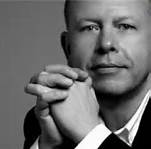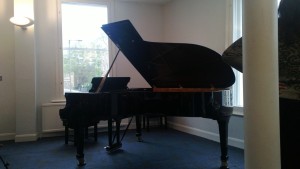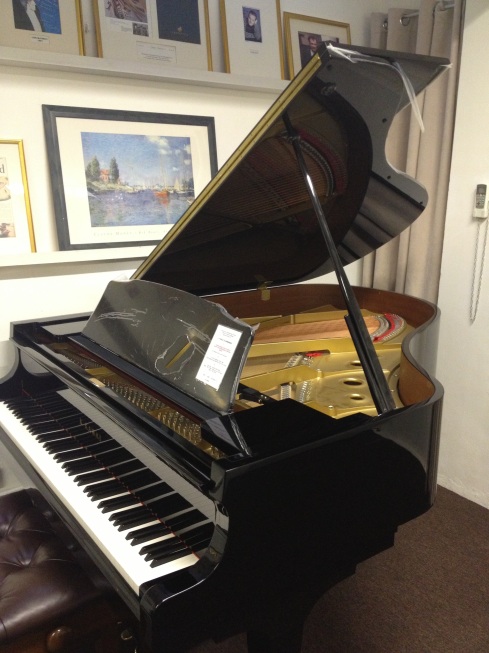Another successful and well-attended session of the London Amateur Piano Group was held today, Saturday 5th October at Schott Music, just off Oxford Street. The group is the brainchild of, and hosted by, the affable, good-humoured and selfless duo of London piano teachers Fran Wilson and Lorraine Liyanage who both lit up the venue with their presence today.
Lights musical and spiritual also emanated from our guest GéNIA, the Russian-born pianist and inventor of Piano-Yoga. I arrived a bit late courtesy of National Express but downstairs in Schotts was another, more peaceful and purposeful world, a refuge from the sclerotic flow of humanity so many of whom death had undone (TS Eliot). Some 15 souls there gathered to pay homage to amateur piano music and to our distinguished guest. The first thing Génia said that truly caught my attention was how we need to ‘purify’ ourselves in order to play well. I love this idea, because it is exactly that miasma of unwanted, jumbled thoughts and distractions that I want so much to banish when I play. She has studied in depth the relationship between the physical and artistic acts of performance, drawing on the ancient Hindu wisdom of Yoga, to produce a most fascinating and efficacious set of principles and practices that we can all use to improve our levels of achievement. Posture, bodily awareness and ‘grounding’ feature in this approach; I found it persuasive.
Our first performer treated us to a delightful and impressive rendering of…something…. Génia confidently diagnosed some physical shortcomings that she gently conveyed and which our artiste graciously and gratefully took on board. One thing about Génia is that she is very articulate, tactful and persuasive, the marks of a good teacher, having us all willingly affirming on the spot the validity of her suggestions. I shall try out her methods at home before judging but fully expect to vindicate her.
Next up was Bruce with a polished and thoughtful rendering of that most beautiful of Chopin’s melodies, the Étude Op. 10 no. 3. Genia saw a posture issue here and before long we were all trussed like amateur parachutists in ‘Yoga belts’, designed to pull the shoulders back and thus psycho-physically dissipate tension in hunched shoulders. There is a lot of logic in this, certainly more than in my return bus heading, as it is now, along the M4 in an unlikely attempt to reach Portsmouth (!?)
Last up myself, delivering an embarrasingly small snippet of Chopin’s Nocturne Op. 62/2, but as it happened the brevity was timely, the end of our session looming. Génia gave me some really helpful feedback in terms of the contrasting roles of right and left hand in this exquisite piece, recommending an action from the finger joints in the flowing left and a more marked articulation in the right with flatter fingers, to deliver a strong melodic line.
A brief but pleasant chat with Fran about ‘monkey thoughts’ and with Lorraine about her impending visit to my home Isle of Wight to attend a harpsichord event at Wolverton Manor sent me skipping back to Victoria on a high.
The bus did get to Portsmouth at 8:45, just in time for the last hover.
Pictures courtesy of Lorraine Liyanage.
